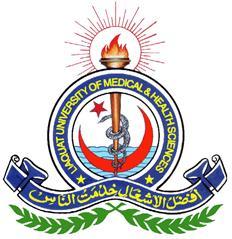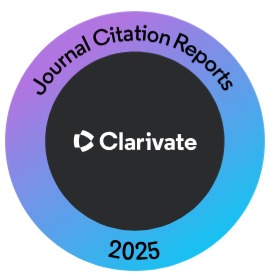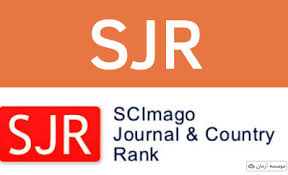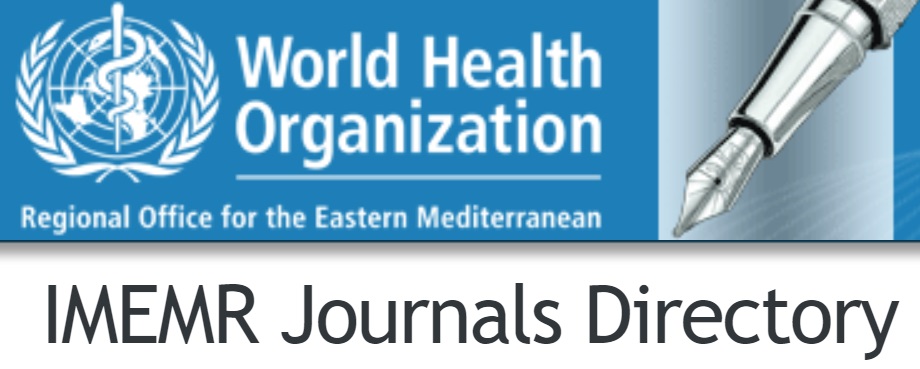Human Monkeypox Virus (hMPXV) Remerges - Another Global Health Concern during the COVID-19 Disaster
Keywords:
COVID-19, pandemic infection, virology, sexual transmission, hMPXVAbstract
The increase in human monkeypox virus (hMPXV) cases amidst the COVID-19 pandemic has raised fear among the general public. The monkeypox virus and the now-extinct smallpox virus belong to the orthopox family of viruses. Although first discovered in 1958, Monkeypox was only well recognized outside the sub-Saharan African countries until the world experienced a monkeypox pandemic in May 2022. The virus is common in some areas of Africa and is often spread through close contact with an infected person or animal. However, recent international trade, travel, and tourism developments have caused viral outbreaks outside Africa. The most recent pandemic in 2022 has been strange because epidemiologists have not found a link between cases and the virus’s ability to spread through sexual contact. The structural and pathogenic activities of the virus that attack host cells need to be better understood. Because of this, it is important to know how viruses and the immune system work together to develop effective ways to treat and prevent diseases. To summarize existing research on Monkeypox, we conducted a narrative review using the MEDLINE, EMBASE, PUBMED, and Scopus databases to look at simultaneous zoonotic pandemics caused by the SARS-CoV-2 or COVID-19 coronavirus and presented the most to date information on the symptoms, epidemiology, diagnosis, prevention, and treatment of Monkeypox. However, more research on epidemiological details, ecology, and virus biology in endemic areas is required to understand the virus better and prevent further human infection.
References
Centers for Disease Control and Prevention. 2022 Monkeypox outbreak global map. Accessed August 22, 2022. Available from: https://www.cdc.gov/poxvirus/ monkeypox/response/2022/world-map.html.
Diaz JH. The disease ecology, epidemiology, clinical manifestations, management, prevention, and control of increasing human infections with animal orthopoxviruses. Wilderness Environ Med. 2021; 32(4): 528-536. doi:10.1016/j.wem.2021.08.003.
Swiss Institute of Bioinformatics (SIB). Orthopoxvirus. Viral Zone. Available from: https://viralzone.expasy.org/149?outline all_by_species.
Heymann DL, Szczeniowski M, Esteves K. Re-emergence of Monkeypox in Africa: a review of the past six years. Br Med Bull. 1998; 54(3): 693-702.
doi: 10.1093/oxfordjournals.bmb.a011720.
Bunge EM, Hoet B, Chen L, Lienert F, Weidenthaler H, Baer LR et al. The changing epidemiology of human monkeypox - A potential threat? A systematic review. PLoS Negl TropDis.2022;16(2):e0010141. doi: 10.1371/journal.pntd.0010141.
Centres for Disease Control and Prevention (CDC). Update: multistate outbreak of Monkeypox—Illinois, Indiana, Kansas, Missouri, Ohio and Wisconsin. MMWR Morb Mortal Wkly Rep. 2003; 52(27): 642-6.
Jeyaraman M, Selvaraj P, Halesh MB, Jeyaraman N, Nallakumarasamy A, Gupta M et al. Monkeypox: An emerging global Public Health Emergency. Life (Basel). 2022; 12(10): 1590. doi: 10.3390/life12101590.
Rodríguez-Morales AJ, Ortiz-Martínez Y, Bonilla-Aldana DK. What has been researched about Monkeypox? A bibliometric analysis of an old zoonotic virus causing global concern. New Microbes New Infect. 2022; 47: 100993. doi: 10.1016/j. nmni.2022.100993.
Sklenovska N, Van Ranst M. E mergence of Monkeypox as the most important OrthopoX virus infection in humans. Front. Public Health. 2018; 6: 241.
doi: 10.3389/fpubh.2018.00241.
Quarleri J, Delpino MV, Galvan V. Monkeypox: considerations for the understanding and containment of the current outbreak in non-endemic countries. Geroscience. 2022; 44(4): 2095-2103. doi: 10.1007/s11357-022-00611-6.
Thomassen HA, Fuller T, Asefi-Najafabady S. Pathogen-host associations and predicted range shifts of human Monkeypox in response to climate change in central Africa. PLoS One. 2013; 8 (7): e66071. doi:10.1371/journal.pone.0066071.
Alakunle E, Moens U, Nchinda G, Okeke MI. Monkeypox virus in Nigeria: infection biology, epidemiology, and evolution. Viruses. 2020; 12(11): 1257. doi: 10.3390/v12111257.
Grant R, Nguyen LL, Breban R. Modelling human-to-human transmission of Monkeypox. Bull World Health Org. 2020; 98(9): 638-640. doi: 10.2471/BLT.19.242347.
Besombes C, Gonofio E, Konamna X, Selekon B, Grant R, Gessain A et al. Intra family transmission of Monkeypox virus, Central African Republic, 2018. Emerg Infect Dis. 2019; 25(8): 1602-1604. doi: 10.3201/eid2508.190112.
Antinori A, Mazzotta V, Vita S. INMI Monkeypox Group. Epidemiological, clinical, and virological characteristics of 4 cases of monkeypox support transmission through sexual contact, Italy, May 2022. Euro Surveill. 2022; 27(22): 2200421. doi: 10.2807/1560-7917.ES.2022.27.22.2200421.
Rahimi FS, Afaghi S, Tarki FE, Moeinabadi-Bidgoli K, Golmohammadi M, Alamdari NM, et al. The Historical Epidemiology of Human Monkeypox: A Review of Evidence from the 1970 Emergence to the 2022 Outbreak. Tohoku J Exp Med. 2022; 258(4): 243-255. doi: 10.1620/tjem.2022.J081.
Peiró-Mestres A, Fuertes I, Camprubí-Ferrer D. Hospital Clinic de Barcelona Monkeypox Study Group. Frequent detection of monkeypox virus DNA in saliva, semen, and other clinical samples from 12 patients, Barcelona, Spain, May to June 2022. Euro Surveill. 2022; 27(28): doi: 10.2807/ 1560-7917.ES.2022.27.28.2200503.
Parker S, Nuara A, Buller RM, Schultz DA. Human monkeypox: An emerging zoonotic disease. Future Microbiol. 2007; 2: 17-34.
Sale TA, Melski JW, Stratman EJ. Monkeypox: an epidemiologic and clinical comparison of African and U.S. disease. J. Am. Acad. Dermatol. 2006; 55: 478-481.
McCollum AM, Damon IK. Human monkeypox. Clin Infect Dis. 2014; 58: 260-7.
Parker S, Nuara A, Buller RML, Schultz DA. Human Monkeypox: an emerging zoonotic disease. Future Microbiol. 2007; 2(1): 17-34. doi: 10.2217/ 17460913.2.1.17.
Jezek Z, Szczeniowski M, Paluku KM, Mutombo M. Human monkeypox: clinical features of 282 patients. J Infect Dis. 1987; 156(2): 293-298. doi: 10.1093/infdis/156.2.293.
Iñigo Martínez J, Gil Montalbán E, Jiménez Bueno S. Monkeypox outbreak predominantly affecting men who have sex with men, Madrid, Spain, April 26 to June 16 2022. Euro Surveill. 2022; 27(27): 2200471. doi: 10.2807/1560-7917.ES.2022.27. 27.2200471.
Thornhill JP, Barkati S, Walmsley S. SHARE-net Clinical Group. Monkeypox virus infection in humans across 16 countries April-June 2022. N Engl J Med. 2022; 387(8): 679-691. doi: 10. 1056/NEJMoa2207323.
Diaz JH. The disease ecology, epidemiology, clinical manifestations, management, prevention, and control of increasing human infections with animal Orthopoxviruses. Wilderness Environ Med. 2021; 32(4): 528-536. doi: 10.1016/j.wem.2021.08.003.
Guarner J, Rio CD, Malani PN. Monkeypox in 2022-What Clinicians Need to Know. JAMA. 2022; 328(2): 139-140. doi: 10.1001/jama.2022.10802.
Organization WH. Laboratory testing for the monkeypox virus: Interim guidance, World Health Organization. Available from: https://www.who.int/publications/i/item/WHO-MPX-laboratory-2022.1 (Accessed on May 27 2022).
Luciani L, Inchauste L, Ferraris O, Charrel R, Nougairède A, Piorkowski G et al. A novel and sensitive real-time PCR system for universal detection of poxviruses. Sci Rep. 2021; 11(1): 1798. doi: 10.1038/s41598-021-81376-4.
Li Y, Zhao H, Wilkins K, Hughes C, Damon IK. Real-time PCR assays for the specific detection of monkeypox virus West African and Congo Basin strain DNA. J Virol Methods 2010; 169(1): 223-227. doi: 10.1016/j.jviromet.2010.07.012.
Reynolds MG, Doty JB, McCollum AM, Olson VA, Nakazawa Y. Monkeypox re- emergence in Africa: a call to expand the concept and practice of One Health. Expert Rev Anti Infect Ther. 2019; 17(2): 129-139. doi: 10.1080/14787210.2019.1567330.
Brown K, Leggat PA. Human Monkeypox: current state of knowledge and implications for the future. Trop. Med. Infect. Dis. 2016; 1(1): 8. doi: 10.3390/ tropicalmed1010008.
Stern D, Olson VA, Smith SK, Pietraszczyk M, Miller L, Miethe P, Dorner BG, Nitsche A. Rapid and sensitive point-of-care detection of Orthopoxviruses by ABICAP immunofiltration. Virol J. 2016; 13(1): 207. doi: 10.1186/s12985-016-0665-5.
Davi SD, Kissenkotter J, Faye M, Bo¨hlken-Fascher S, Stahl-Hennig C, Faye O et al. Recombinase polymerase amplification assay for rapid detection of Monkeypox virus. Diagn Microbiol Infect Dis. 2019; 95(1): 41-45. doi: 10.1016/j.diagmicrobio.2019. 03.015.
Chatterjee S, Sharma AR, Bhattacharya M, Dhama K, Lee SS, Chakraborty C. Relooking the monkeypox virus during this present outbreak: epidemiology to therapeutics and vaccines. Eur Rev Med Pharmacol Sci. 2022; 26(16): 5991-6003.
doi: 10.26355/eurrev20220829541.
Parker S, Handley L, Buller RM. Therapeutic and prophylactic drugs to treat orthopoxvirus infections. Future Virol. 2008; 3(6): 595-612. doi: 10.2217/17460794. 3.6.595.
Grosenbach DW, Honeychurch K, Rose EA. Oral tecovirimat for the treatment of smallpox. N Engl J Med. 2018; 379: 44-53. doi: 10.1056/NEJMoa1705688.
Earl PL, Americo JL, Wyatt LS, Espenshade O, Bassler J, Gong K et al. Rapid protection in a monkeypox model by a single injection of a replication-deficient vaccinia virus. Proc Natl Acad Sci USA. 2008; 105(31): 10889-94. Available from: doi: 10.1073/pnas. 0804985105.
Akazawa D, Ohashi H, Hishiki T. Potential anti monkeypox virus activity of atovaquone, mefloquine, and molnupiravir, and their potential use as treatments. bioRxiv. Published online August 2, 2022. doi: 10.1101/ 2022.08.02.502485v1oi.org/10.1128/JVI.02642-05.
Saijo M, Ami Y, Suzaki Y, Nagata N, Iwata N, Hasegawa H et al. LC16m8, a highly attenuated vaccinia virus vaccine lacking expression of the membrane protein B5R, protects monkeys from Monkeypox. J Virol. 2006; 80(11): 5179–88.
Titanji BK, Tegomoh B, Nematollahi S, Konomos M, Kulkarni PA. Monkeypox: A contemporary review for healthcare professionals. Open Forum Infect Dis [Internet]. 2022; 9(7): ofac310. Available from: http://dx.doi.org/10.1093/ofid/ofac310.
Food and Agriculture Organization of the United Nations. The Future of Food and agriculture Trends and Challenges. Available from http://www.fao.org/3/a-i6583e.pdf.
Sah R, Mohanty A, Siddiq A, Singh P, Abdelaal A, Alshahrani NZ et al. Monkeypox reported in India - South East Asia Region: Health and economic challenges. Lancet Reg Health Southeast Asia. 2022; 4: 100063. Available from: https://www.thelancet.com/journals/lansea/article/PIIS2772-3682(22)00079-8/fulltext.
Monkeypox: Kerala confirms India’s second case in last four days. News9live. 2022 [cited 2022 October 18]. Available from: https://www.news9live.com/state/kerala/second case-of-monkeypox-in-kerala-183418
Rajiv G. India’s third monkeypox case reported in Kerala. Times Of India. 2022 [cited 2022 October 18]. Available from: https://timesofindia.indiatimes.com/city/kochi/third-monkeypox-case-reported-in-kerala/articleshow/93049563.cms.
Leal Filho W, Ternova L, Parasnis SA, Kovaleva M, Nagy GJ. Climate Change and Zoonoses: A Review of Concepts, Definitions, and Bibliometrics. Int J Environ Res Public Health. 2022; 19(2): 893. doi: 10.3390/ijerph19020893.
Reed KD, Meece JK, Henkel JS, Shukla SK. Birds, migration and emerging zoonoses: west nile virus, lyme disease, influenza A and enteropathogens. Clin Med Res. 2003; 1(1): 5-12. doi: 10.3121/cmr.1.1.5.
Tollefson J. Why deforestation and extinctions make pandemics more likely. Nature. 2020; 584(7820): 175-6. doi: 10.1038/d41586-020-02341-1.
Downloads
Published
How to Cite
Issue
Section
License
Copyright (c) 2023 Journal of Liaquat University of Medical & Health Sciences

This work is licensed under a Creative Commons Attribution-NonCommercial-ShareAlike 4.0 International License.
Submission of a manuscript to the journal implies that all authors have read and agreed to the content of the undertaking form or the Terms and Conditions.
When an article is accepted for publication, the author(s) retain the copyright and are required to grant the publisher the right of first publication and other non-exclusive publishing rights to JLUMHS.
Articles published in the Journal of Liaquat University of Medical & health sciences are open access articles under a Creative Commons Attribution-Noncommercial - Share Alike 4.0 License. This license permits use, distribution and reproduction in any medium; provided the original work is properly cited and initial publication in this journal. This is in accordance with the BOAI definition of open access. In addition to that users are allowed to remix, tweak and build upon the work non-commercially as long as appropriate credit is given and the new creations are licensed under the identical terms. Or, in certain cases it can be stated that all articles and content there in are published under creative commons license unless stated otherwise.























